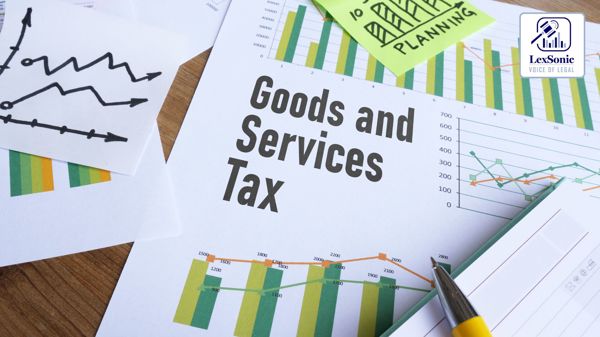Supreme Court Mandates Reasoned Orders Under GST Act, Upholding Taxpayer's Right to Appeal.
In a significant ruling, the Supreme Court of India has underscored the mandatory requirement for tax authorities to issue a reasoned final order under Section 129(3) of the Central Goods and Services Tax (CGST) Act, 2017, even when the taxpayer has paid the demanded tax and penalty. This decision, arising from the case of M/s. ASP Traders v/s State of Uttar Pradesh & Others, emphasizes the importance of due process, transparency, and the preservation of a taxpayer's right to appeal.
The appeal was filed by M/s. ASP Traders (appellant) against a judgment of the High Court of Judicature at Allahabad. The case originated when a consignment of arecanut belonging to the appellant was detained by the Mobile Squad in Uttar Pradesh due to alleged discrepancies. A notice under Section 129(3) of the CGST Act, 2017, was issued, specifying the tax and penalty payable. Despite filing a reply denying the allegations, the appellant, facing business exigencies, deposited the demanded amount of Rs. 7,20,440/- towards Integrated Goods and Services Tax (IGST) through Form GST DRC-03, leading to the release of their goods.

However, no final order under Section 129(3) was subsequently issued by the Mobile Squad. The appellant's requests for such an order were met with the assertion that, in light of Section 129(5) of the CGST Act, all proceedings were deemed concluded upon payment, rendering a further order unnecessary. This led the appellant to approach the High Court, seeking a direction for the authorities to furnish a copy of the order or to pass a speaking order under Section 129(3). The High Court dismissed the writ petition, agreeing with the respondents' interpretation that the proceedings concluded upon payment as per Section 129(5).
The Supreme Court, in its examination of the matter, delved into the interpretation of Section 129 of the CGST Act, 2017, and Rule 142 of the CGST Rules, 2017. While Section 129(5) states that proceedings are "deemed to be concluded" upon payment of the amount, the Court clarified that this deeming fiction does not absolve the proper officer from passing a formal, reasoned order. The Court highlighted that Section 129(3) explicitly requires the proper officer to "issue a notice specifying the tax and penalty payable and thereafter, pass an order".
Crucially, the Court referred to Circular No. 41/15/2018-GST dated April 13, 2018, issued by the Central Board of Indirect Taxes and Customs (CBIC). This circular, which is binding on the department, mandates that after payment of tax and penalty, the proper officer must issue a release order in Form GST MOV-05, pass a formal order of demand in Form GST MOV-09, and upload a summary in Form GST DRC-07.
The Supreme Court emphasized that the payment made by the appellant, particularly given their filed objections and the context of business exigencies, cannot be construed as an admission of liability or a waiver of their right to challenge the levy. The Court noted that the GST payment portal currently lacks a mechanism for taxpayers to indicate that a payment is made "under protest," which can lead to payments made under commercial compulsion being misconstrued as voluntary.
Citing the principles of natural justice, the Court asserted that when a taxpayer responds to a show cause notice, the adjudicating authority is obligated to consider that response and issue a reasoned, speaking order. This is not merely a procedural formality but a substantive safeguard essential for fairness in quasi-judicial proceedings. The right to appeal under Section 107 of the CGST Act, 2017, is contingent upon the existence of such an order; without it, the right becomes illusory. The absence of a formal order, the Court stated, creates a "legal vacuum" and any consequential action would be "unsupported by authority of law, thereby potentially violating Article 265 of the Constitution of India," which prohibits the levy or collection of tax except by authority of law.
Drawing guidance from its previous decision in M/s. Kranti Associates (P) Ltd. & Anr. v. Masood Ahmed Khan & Ors., the Supreme Court reiterated that fairness, transparency, and accountability necessitate the recording of reasons in decisions, even administrative ones, especially when they affect individuals prejudicially. Reasoned decisions serve as a restraint on arbitrary exercise of power, reassure that discretion is exercised on relevant grounds, facilitate judicial review, and are vital for the development of law.
In conclusion, the Supreme Court set aside the High Court's order and directed Respondent No. 3 (the Mobile Squad official) to pass a reasoned final order under Section 129(3) of the CGST Act, 2017, in Form GST MOV-09, after providing an opportunity of being heard as mandated under Section 129(4). The summary of this order must be uploaded in Form GST DRC-07 within one month from the date of receipt of the judgment copy. The Court affirmed that after such an order is passed, the appellant is free to pursue appropriate legal remedies. This ruling reinforces the fundamental principles of administrative law and the protection of taxpayer rights within the GST regime.
CENTRAL GOODS AND SERVICES TAX ACT, 2017
